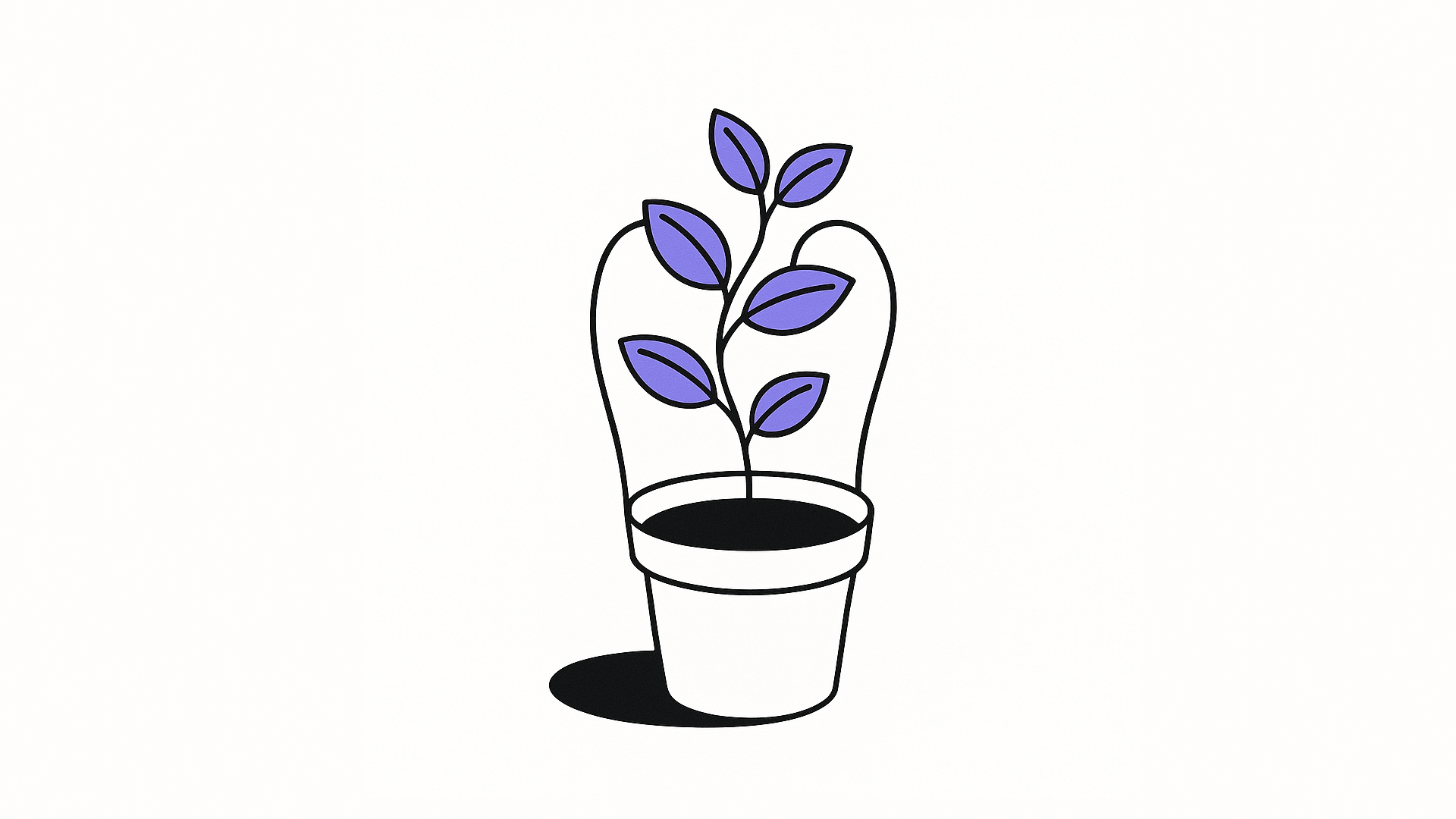How Tiimo makes planning accessible without ads
Tiimo’s freemium model reflects our belief that planning tools should be accessible, user-centered, and designed for how neurodivergent people actually think.
Tiimo’s freemium model reflects our belief that planning tools should be accessible, user-centered, and designed for how neurodivergent people actually think.
Tiimo started in 2015 with a simple yet ambitious idea: to create a planning app designed by and for neurodivergent people. What began as a research project with neurodivergent teens evolved into something much bigger, an app built to support ADHD'ers, Autistic folks, and anyone who thrives with visual organization while keeping co-creation and inclusion at the heart of everything we do.
Our team reflects the community we support because many of us are neurodivergent ourselves, bringing lived experience to every design decision and feature we build. Based in Copenhagen, we've embraced flexible working styles that accommodate different support needs and ways of working, creating a non-hierarchical, user-driven approach that ensures Tiimo truly serves the people it's made for.
This personal connection runs deep throughout our founding story. Melissa, one of Tiimo's co-founders, was diagnosed with ADHD and dyslexia later in life, and her experiences brought invaluable insights to the design process that helped shape an app reflecting real needs rather than assumptions about how neurodivergent people should organize their lives.
Today, Tiimo is used by over a million people worldwide who've found planning approaches that actually work with their brains rather than against them. Our goal has always been helping people feel more in control of their time and routines, and we're continually inspired by the incredible community that's grown around the app and grateful for the trust our users place in us every day.
We’ve been asked this question many times, and we get it. Planning tools can feel out of reach for some, and we’ve always worked to make Tiimo as accessible as possible. However, two key factors shaped our approach:
Ads can be distracting, and for an app designed to support focus, they simply don’t make sense. From the start, we made the decision to keep Tiimo completely ad-free. While ads could have helped cover costs, they would have gone against what Tiimo is all about.
Creating and improving a tool like Tiimo takes time, care, and resources. From intentional design to continuous updates, every part of the process requires funding. We’re committed to fair pay for our team, many of whom are neurodivergent, recognizing the systemic underemployment our community often faces. Pro subscriptions have helped sustain this work while keeping the app user-centered and distraction-free.
In 2022, we reached a major milestone by raising €3 million from social impact investors like People Ventures, Crowberry Capital, and Divergent who share our mission to create tools that genuinely support neurodivergent people and their communities.
This funding enabled us to launch a forever free version of Tiimo that offers real value rather than a limited demo. Free users can access essential tools including the visual planner, focus timer, anytime activities, and even limited access to AI features like our subtask generator and Co-Planner, ensuring that cost never becomes a barrier to basic planning support.
For those who need more comprehensive tools, Tiimo Pro provides expanded functionality when you're ready to upgrade. Pro features include calendar integration with Google and iCal, multi-device sync across phone, desktop, tablet, and watch, shared access for up to five profiles perfect for families or support teams, unlimited use of AI features like subtask generation and the Co-Planner, and extensive personalization tools that let you fully customize how Tiimo looks and works for your specific needs.
Our freemium approach reflects a core belief that planning tools should be accessible to as many people as possible, especially those who have historically been excluded from traditional productivity systems. When we remove financial barriers to basic functionality, we create opportunities for people to discover whether visual planning approaches work for their brains before making any investment, while also ensuring that pro features remain available for users who benefit from more advanced support and customization options.
The world still has a long way to go in creating systems that truly support neurodivergent people. From inaccessible diagnostic processes and lack of workplace accommodations to sensory-unfriendly environments and limited mental health support, these challenges highlight how much work remains in building a genuinely inclusive society.
We're committed to creating tools that make a real difference in this landscape. Our roadmap includes exploring features like mood and habit tracking (now available) to help users understand how their choices and environments influence their well-being, while also considering how anonymized user data could contribute to research that improves diagnostic tools and develops more effective support systems for neurodivergent people worldwide.
The vision extends beyond individual planning tools toward systemic change that recognizes and accommodates different ways of thinking, learning, and being in the world. While there's significant work ahead, we're excited to keep building tools that empower individuals, strengthen communities, and create meaningful change one person at a time.
We believe that when neurodivergent people have access to tools and environments designed with their needs in mind, everyone benefits from the innovation, creativity, and unique perspectives that emerge. We're working toward a world where neurodivergence is understood as natural human variation that enriches communities rather than something requiring correction.
Tiimo’s freemium model reflects our belief that planning tools should be accessible, user-centered, and designed for how neurodivergent people actually think.
Tiimo started in 2015 with a simple yet ambitious idea: to create a planning app designed by and for neurodivergent people. What began as a research project with neurodivergent teens evolved into something much bigger, an app built to support ADHD'ers, Autistic folks, and anyone who thrives with visual organization while keeping co-creation and inclusion at the heart of everything we do.
Our team reflects the community we support because many of us are neurodivergent ourselves, bringing lived experience to every design decision and feature we build. Based in Copenhagen, we've embraced flexible working styles that accommodate different support needs and ways of working, creating a non-hierarchical, user-driven approach that ensures Tiimo truly serves the people it's made for.
This personal connection runs deep throughout our founding story. Melissa, one of Tiimo's co-founders, was diagnosed with ADHD and dyslexia later in life, and her experiences brought invaluable insights to the design process that helped shape an app reflecting real needs rather than assumptions about how neurodivergent people should organize their lives.
Today, Tiimo is used by over a million people worldwide who've found planning approaches that actually work with their brains rather than against them. Our goal has always been helping people feel more in control of their time and routines, and we're continually inspired by the incredible community that's grown around the app and grateful for the trust our users place in us every day.
We’ve been asked this question many times, and we get it. Planning tools can feel out of reach for some, and we’ve always worked to make Tiimo as accessible as possible. However, two key factors shaped our approach:
Ads can be distracting, and for an app designed to support focus, they simply don’t make sense. From the start, we made the decision to keep Tiimo completely ad-free. While ads could have helped cover costs, they would have gone against what Tiimo is all about.
Creating and improving a tool like Tiimo takes time, care, and resources. From intentional design to continuous updates, every part of the process requires funding. We’re committed to fair pay for our team, many of whom are neurodivergent, recognizing the systemic underemployment our community often faces. Pro subscriptions have helped sustain this work while keeping the app user-centered and distraction-free.
In 2022, we reached a major milestone by raising €3 million from social impact investors like People Ventures, Crowberry Capital, and Divergent who share our mission to create tools that genuinely support neurodivergent people and their communities.
This funding enabled us to launch a forever free version of Tiimo that offers real value rather than a limited demo. Free users can access essential tools including the visual planner, focus timer, anytime activities, and even limited access to AI features like our subtask generator and Co-Planner, ensuring that cost never becomes a barrier to basic planning support.
For those who need more comprehensive tools, Tiimo Pro provides expanded functionality when you're ready to upgrade. Pro features include calendar integration with Google and iCal, multi-device sync across phone, desktop, tablet, and watch, shared access for up to five profiles perfect for families or support teams, unlimited use of AI features like subtask generation and the Co-Planner, and extensive personalization tools that let you fully customize how Tiimo looks and works for your specific needs.
Our freemium approach reflects a core belief that planning tools should be accessible to as many people as possible, especially those who have historically been excluded from traditional productivity systems. When we remove financial barriers to basic functionality, we create opportunities for people to discover whether visual planning approaches work for their brains before making any investment, while also ensuring that pro features remain available for users who benefit from more advanced support and customization options.
The world still has a long way to go in creating systems that truly support neurodivergent people. From inaccessible diagnostic processes and lack of workplace accommodations to sensory-unfriendly environments and limited mental health support, these challenges highlight how much work remains in building a genuinely inclusive society.
We're committed to creating tools that make a real difference in this landscape. Our roadmap includes exploring features like mood and habit tracking (now available) to help users understand how their choices and environments influence their well-being, while also considering how anonymized user data could contribute to research that improves diagnostic tools and develops more effective support systems for neurodivergent people worldwide.
The vision extends beyond individual planning tools toward systemic change that recognizes and accommodates different ways of thinking, learning, and being in the world. While there's significant work ahead, we're excited to keep building tools that empower individuals, strengthen communities, and create meaningful change one person at a time.
We believe that when neurodivergent people have access to tools and environments designed with their needs in mind, everyone benefits from the innovation, creativity, and unique perspectives that emerge. We're working toward a world where neurodivergence is understood as natural human variation that enriches communities rather than something requiring correction.
Tiimo’s freemium model reflects our belief that planning tools should be accessible, user-centered, and designed for how neurodivergent people actually think.
Tiimo started in 2015 with a simple yet ambitious idea: to create a planning app designed by and for neurodivergent people. What began as a research project with neurodivergent teens evolved into something much bigger, an app built to support ADHD'ers, Autistic folks, and anyone who thrives with visual organization while keeping co-creation and inclusion at the heart of everything we do.
Our team reflects the community we support because many of us are neurodivergent ourselves, bringing lived experience to every design decision and feature we build. Based in Copenhagen, we've embraced flexible working styles that accommodate different support needs and ways of working, creating a non-hierarchical, user-driven approach that ensures Tiimo truly serves the people it's made for.
This personal connection runs deep throughout our founding story. Melissa, one of Tiimo's co-founders, was diagnosed with ADHD and dyslexia later in life, and her experiences brought invaluable insights to the design process that helped shape an app reflecting real needs rather than assumptions about how neurodivergent people should organize their lives.
Today, Tiimo is used by over a million people worldwide who've found planning approaches that actually work with their brains rather than against them. Our goal has always been helping people feel more in control of their time and routines, and we're continually inspired by the incredible community that's grown around the app and grateful for the trust our users place in us every day.
We’ve been asked this question many times, and we get it. Planning tools can feel out of reach for some, and we’ve always worked to make Tiimo as accessible as possible. However, two key factors shaped our approach:
Ads can be distracting, and for an app designed to support focus, they simply don’t make sense. From the start, we made the decision to keep Tiimo completely ad-free. While ads could have helped cover costs, they would have gone against what Tiimo is all about.
Creating and improving a tool like Tiimo takes time, care, and resources. From intentional design to continuous updates, every part of the process requires funding. We’re committed to fair pay for our team, many of whom are neurodivergent, recognizing the systemic underemployment our community often faces. Pro subscriptions have helped sustain this work while keeping the app user-centered and distraction-free.
In 2022, we reached a major milestone by raising €3 million from social impact investors like People Ventures, Crowberry Capital, and Divergent who share our mission to create tools that genuinely support neurodivergent people and their communities.
This funding enabled us to launch a forever free version of Tiimo that offers real value rather than a limited demo. Free users can access essential tools including the visual planner, focus timer, anytime activities, and even limited access to AI features like our subtask generator and Co-Planner, ensuring that cost never becomes a barrier to basic planning support.
For those who need more comprehensive tools, Tiimo Pro provides expanded functionality when you're ready to upgrade. Pro features include calendar integration with Google and iCal, multi-device sync across phone, desktop, tablet, and watch, shared access for up to five profiles perfect for families or support teams, unlimited use of AI features like subtask generation and the Co-Planner, and extensive personalization tools that let you fully customize how Tiimo looks and works for your specific needs.
Our freemium approach reflects a core belief that planning tools should be accessible to as many people as possible, especially those who have historically been excluded from traditional productivity systems. When we remove financial barriers to basic functionality, we create opportunities for people to discover whether visual planning approaches work for their brains before making any investment, while also ensuring that pro features remain available for users who benefit from more advanced support and customization options.
The world still has a long way to go in creating systems that truly support neurodivergent people. From inaccessible diagnostic processes and lack of workplace accommodations to sensory-unfriendly environments and limited mental health support, these challenges highlight how much work remains in building a genuinely inclusive society.
We're committed to creating tools that make a real difference in this landscape. Our roadmap includes exploring features like mood and habit tracking (now available) to help users understand how their choices and environments influence their well-being, while also considering how anonymized user data could contribute to research that improves diagnostic tools and develops more effective support systems for neurodivergent people worldwide.
The vision extends beyond individual planning tools toward systemic change that recognizes and accommodates different ways of thinking, learning, and being in the world. While there's significant work ahead, we're excited to keep building tools that empower individuals, strengthen communities, and create meaningful change one person at a time.
We believe that when neurodivergent people have access to tools and environments designed with their needs in mind, everyone benefits from the innovation, creativity, and unique perspectives that emerge. We're working toward a world where neurodivergence is understood as natural human variation that enriches communities rather than something requiring correction.


Traditional routines often fail people with ADHD. They assume steady focus and easy transitions that rarely exist. This article explores how to design routines that are flexible, kind, and practical so they can truly support life with ADHD.

Corporate neurodiversity programs promise inclusion but still fail most neurodivergent workers. Why the 'superpowers' approach isn't working.

From its origins as a research project in Denmark to today's AI Co-Planner, Tiimo has always prioritized accessibility over efficiency. Here's how AI is helping us extend that philosophy to support users during their most challenging planning moments.